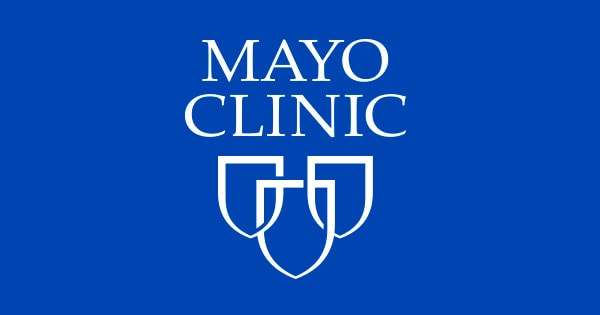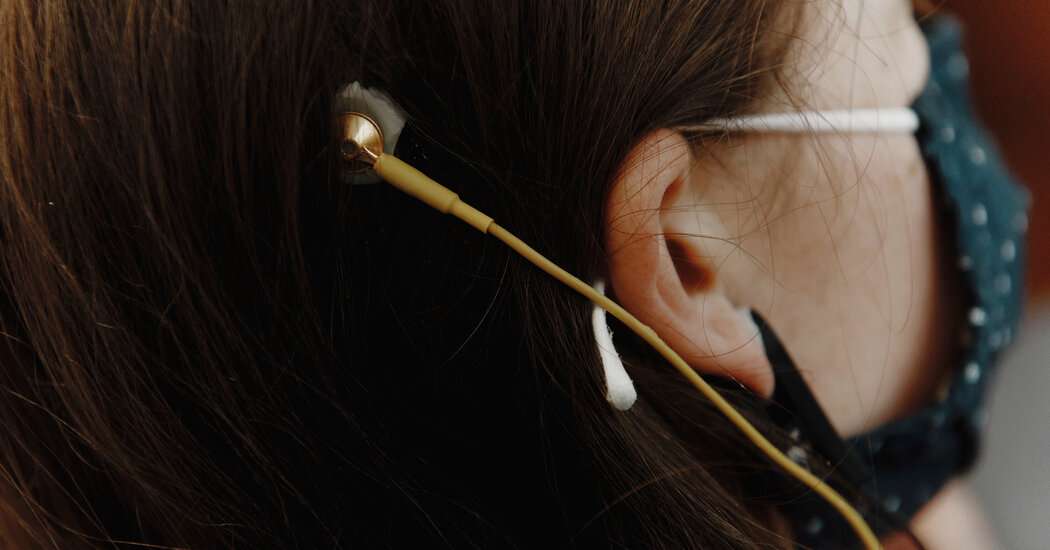What Is Jungian Therapy?
Jungian therapy is a form of psychotherapy that originated in the theories of Swiss psychiatrist Carl Jung, who found that many of his patients suffered from deeply rooted feelings of gloom and inadequacy. He began to speak about the “divine” inside of people, which he called their “self.” He felt that we had overlooked this divine aspect in psychology.
Jung’s therapy emphasizes helping people find their true selves, and it often uses tools like art and myth to help patients make contact with these deep feelings, thoughts, and beliefs. In addition, Jungian therapy involves getting in touch with the unconscious mind, which he believed plays a large role in shaping people’s thoughts and behavior.
Today, some therapists still use Jungian therapy. It can be helpful for people who are struggling with issues like depression, anxiety, and self-esteem. Because it focuses on the whole person, not just their symptoms, it can be helpful for people who haven’t found success with other therapies.
Jungian Therapy Techniques
Jungian therapy techniques vary but often involve working with dreams, symbols, and mythology. The therapist will help the client explore these concepts and understand the meaning they hold for the individual. This can be a lengthy process, as it can take time to uncover all of the unconscious material influencing a person’s life.
Below is a list of some of the techniques used in Jungian therapy:
- Art. Art can provide a way to access the unconscious and explore images that arise. Through art, we can learn about our self-image and what symbols and themes emerge when concentrating on a particular problem.
- Dream analysis. One of the most important means of achieving insight in the Jungian analysis is through dreams, which often provide material to work with in therapy. As a Jungian client, you might keep a notebook by your bed to record your dreams when you wake up because they usually fade rapidly from memory afterward.
- Active imagination. This technique allows you to imagine yourself in scenes that represent the unconscious material you are working on. In this way, you can explore the material further and understand what it means for you.
- Word association. This is a technique in which you say the first word that pops into your head after hearing another word. This exercise can help reveal the unconscious thoughts and feelings that influence your behavior.
What Jungian Therapy Can Help With
Are you wondering whether Jungian therapy could help you with your particular problem or situation? Jungian therapy tends to be most effective for people interested in self-exploration and personal growth.
If you are dealing with unresolved emotional issues or psychological problems, Jungian therapy may be able to help you address and resolve them. However, it is important to note that Jungian therapy is not a cure-all; it is only one tool that one can use to delve into your psyche and heal what needs healing.
A Jungian therapist will not be able to give you the answers or tell you what to do; instead, they will provide you with an opportunity to discover the root cause of your issues through dreams, fantasies, art, play, and active imagination techniques.
Below is a list of psychological disorders for which Jungian therapy might be used:
Benefits of Jungian Therapy
You may find Jungian therapy advantageous as it provides the opportunity to peel back the layers of the psyche and discover hidden parts of yourself. Once you learn about your subconscious mind, you may feel more in control and able to make positive changes throughout your life by tapping into this deep well of knowledge and inspiration.
Jungian therapy can also provide a safe environment for exploring issues that you may be afraid to talk about with friends and family. As your therapist will not judge you for anything you say, you can explore difficult emotions and memories without fear of repercussion or censure.
Jungian therapy also helps you to build a more meaningful and satisfying life. The theory of the collective subconscious states that we are all connected, and this is something Jungian therapy can help you explore and understand on a deep level. You’ll come to see the big picture as you learn how your role intersects with those of people around you, as well as our planet as a whole.
While Jungian therapy is not a quick-fix solution, the value that you will derive from it means that the time and money you invest in this type of therapy will pay off exponentially.
Effectiveness
A 2013 review study of the effectiveness of Jungian therapy showed significant improvements in the level of symptoms, interpersonal problems, and personality structure. These improvements remained for a period of up to six years. In addition, there was evidence in some studies of improvements after the end of therapy.
Patients also were shown to reduce health care utilization below the average of the general population. Finally, patients were seen to move from a level of severe symptoms to psychological health. On average, patients in the studies attended 90 sessions of therapy.
Things to Consider
Jungian therapy may not be the right choice for everyone. If you aren’t comfortable working with symbolism, metaphors, and the subjective nature of your experiences, this type of therapy may not be a good fit for you.
In addition, it may be difficult to find a Jungian therapist who is right for you. Be sure to do your research and ask around to see if anyone you know has had a positive experience with a Jungian therapist. You may find it difficult to find a therapist who practices this type of therapy, but finding a good match is worth the extra effort.
How to Get Started
If you feel that Jungian therapy would benefit you, your first step is to find a therapist who is qualified to practice it. The International Association for Analytical Psychology (IAAP) is a good place to start looking for a therapist.
If you are already in therapy, ask your therapist if they are familiar with Jungian psychology. If not, they may be able to refer you to a Jungian analyst or psychotherapist.
During the intake session for Jungian therapy, you and your therapist will begin to establish a therapeutic relationship. They may ask you questions about your background and family history and your symptoms or concerns to help them determine what approaches would be most helpful for you.
During the course of Jungian therapy, which typically lasts several years, you’ll meet with your therapist at least once per week. Due to the length of this type of therapy, these appointments can be costly. Be sure that you either have insurance that covers Jungian therapy or can afford the cost.
A Word From Verywell Mind
Jungian therapy is an in-depth type of therapy that can take a long time to achieve its goals. This doesn’t mean it’s not worth pursuing, particularly if you feel as though you want to delve into your subconscious and not just deal with the surface level of your problems.
Jungian Therapy Examples
As an example of the Jungian approach, we can consider depression. In addition to exploring issues of recent or childhood loss which are often involved in depression, Jungian therapy also explores whether the depression is an indication that the client’s current approach to life is unsustainable. In this case, a period of stillness and reflection may be required to reorient themselves in a healthier way. The experience of sadness, loss of energy, hopelessness and irritability are seen in the greater context of the individual’s psychological development.
This is often the case when individuals reach midlife and their approach to life no longer sustains them. Some may need to invest more in creative, interpersonal, or community endeavors rather than professional ambitions in order to be more balanced and less depressed. Others, however, may need to develop a more practical, mature, and realistic approach after focusing on creative goals earlier in life.
The treatment of unhealthy relationship patterns serves as another example of how Jungian therapy works. These may be understood as attempts to rework harmful relationships from the past, or as attempts to integrate personality aspects that have not yet been incorporated.
For instance, a hard-driven individual may be attracted to romantic partners that offer more warmth and connection, while their partner may be seeking their own authority through connection with the hard-driven partner. Treatment would help either partner to find those qualities within themselves, rather than expecting their partner to live them out for them.
Who Is Qualified to Practice Jungian Therapy?
While some therapists familiarize themselves with Jung’s ideas and refer to themselves as Jungian therapists, the only assurance that they are truly proficient with the approach is for them to be certified by the International Association for Analytical Psychology (IAAP) as Jungian analysts.
The practice of Jungian analysis requires extensive and demanding training, which includes traditional theories of human development and psychopathology, along with a thorough grounding in mythology and an understanding of Jungian theory. To qualify as a certified Jungian analyst, the therapist must complete a post-graduate training program at an institute approved by the IAAP. This training takes a minimum of four years (in addition to previous graduate work), but more often requires six or seven years.
Jungian training also requires that the student undergo a certain number of hours of personal analysis with a Jungian therapist.
Cost of Jungian Therapy
Typically, Jungian analysts work in private practice, though they may occasionally be found in clinics or hospitals. Depending on the region in which they practice, their fees can range from $100 to $300 per session. Most Jungian analysts will set some of their fees based on a sliding scale, but you should check to make sure that they currently have reduced fee openings in their practice, and whether they will be able to lower their fee enough to make it feasible for you to attend on a regular basis.
While clients often gain some symptomatic relief within a few months, the deeper project of Jungian analysis tends to last for years. Ideally, this is considered when choosing a therapist so that the process does not have to be terminated due to financial reasons before it is complete.
Jungian analysts usually have licenses to practice in their respective states. Therefore, you may be able to file for out-of-network reimbursement for sessions you have with them. Many Jungian analysts do not accept in-network reimbursement.
Jungian training institutes have low-fee clinics wherein individuals with limited income may enter therapy with a student in training. Generally, these cases are supervised very closely. Costs in these circumstances may range from $35-$100 per session.
Here are links to some of these institutes:
How to Find a Jungian Therapist
Many regions have Jungian professional associations which offer a referral service or a website with a listing of certified analysts who are members of their associations. You can find a list of these associations at The International Association for Analytical Psychology, where they maintain a list of regional groups and contacts
What to Expect at Your First Appointment
Jungian therapy is framed within a specified amount of time (usually 45-50 minutes), and within a private, confidential environment, but is otherwise unstructured and spontaneous. While the therapist may want to clarify certain issues such as suicidality, addictions, and stability of the potential client in the first appointment, they are more likely to explore these in the context of the interview as they arise.
An initial consultation provides the opportunity for both patient and therapist to decide whether the therapist can be of help, and whether there is a good fit of personalities. Clients may choose to interview two or three analysts before committing to one.
The therapist may be curious about any dreams you have had recently, since they may shed light on your issues. However, remembering dreams is not necessary to begin the process.
The therapist will also explain their policies for payment, attendance, and cancellation.
Is Jungian Therapy Effective?
Jungian therapy is a form of psychodynamic therapy, which, according to a review in the American Journal of Psychiatry, has been found to be as effective as cognitive behavioral therapy and medication for treating target symptoms.4
More specifically, a review of research into the effectiveness of Jungian therapy published in the journal Behavioral Sciences, found that:5
- All studies showed significant improvements not only on the level of symptoms, behavior, and interpersonal problems, but also on the level of personality structure
- These improvements are sustained after completion of therapy for a period of up to six years
- Several studies indicate that patients continue to improve after the end of therapy
- Medical insurance statistics indicate that after Jungian therapy, patients use medical care less than most people
- Several studies indicated that Jungian treatment not only improved severe symptoms, but also increased overall psychological wellbeing
- Typically these changes occur within 90 sessions, demonstrating that Jungian psychotherapy is effective and cost-effective
Risks of Jungian Therapy
Any form of long-term therapy can be used to avoid moving into the world and facing one’s fears. Ideally, the therapist will challenge and explore any avoidant tendencies on the part of the client, but answering the challenge requires a willingness on the part of the client to experience feelings, memories, or prospects that they have not wanted to explore previously.
Similarly, a client could possibly become so intellectually engaged in Jungian concepts such as archetypes that they might fail to engage emotionally. Avoiding feelings robs the client of the material they need to dissolve psychological blocks, and limits how productive the work can be.
Criticisms of Jungian Therapy
Jung’s interest in mysticism has led some to assume that belief in mysticism was a requirement for treatment.6 While Jung did have an interest in the phenomenon of spiritual experiences, he developed his approach through empiricism, and a mystical perspective is not an inherent part of the treatment. These critiques have been addressed by a number of writers, including historian Sonu Shamdasani.7
The concept of the archetype has been criticized as inconsistent and lacking empirical or biological support. Some Jungian theorists, such as Anthony Stevens, have argued that archetypes had an adaptive function in evolution and are therefore transmitted genetically.8 Others, such as Jean Knox, argue that archetypes emerge through cultural and environmental exposure.9 While the concept remains controversial, many find the images of archetypes to resonate deeply, and therefore to be experientially helpful.
How Is Jungian Therapy Different Than Other Types of Therapy?
While there is a wide range in how Jungian therapy and other methods are practiced, the fundamental aspects that differentiate it are its forward-looking perspective, its positive focus on the ongoing process of psychological growth, and its utilization of the unconscious as a source of creativity and guidance. Psychological problems are understood to be caused by blocks to life cycle stages. As an additive process, it seeks to integrate what has been left out in addition to understanding childhood stressors.
History of Jungian Therapy
Jung began to develop his approach to therapy in the early 20th century. After completing his studies as a physician, he began clinical work at the Burghölzli clinic in Switzerland, which gave him the opportunity to observe a wide range of psychological struggles, and to develop his own theories.
Jung collaborated with Sigmund Freud, the founder of psychoanalysis, in the development of psychoanalytic theory and practice during the early years of the 20th century. However, by 1912, Jung felt too at odds with Freud’s emphasis on the role of sexuality to continue their collaboration, and ceased working with him.
Freud postulated three different parts of the personality, including ego (roughly equivalent to the adult), super-ego (parent) and id (child). Jung expanded the idea of different personality parts to include persona, shadow, hero, wise old man/woman, warrior, orphan, and many other archetypal parts that appear universally. He incorporated psychological growth, in addition to Freud’s emphasis on sexuality and death, as a primary motivation and source of energy in the therapeutic process.
Jung expected that other clinicians and theorists would continue to develop and revise his ideas, and this has certainly been the case. Psychiatrist Michael Fordham integrated concepts from child development and object relations.10 Physician Anthony Stevens applied concepts of evolutionary psychology to Jungian theory.11 Psychologist James Hillman developed “Archetypal Psychology,” an approach critical of scientific reductionism and materialism, focusing instead on the recognition of “soul” and the meaning of suffering.12 Psychologist Donald Kalsched utilized Jungian concepts for the treatment of trauma.13
While originally grounded primarily in Europe and North America, the practice of Jungian analysis is now rapidly increasing in Asia and South America, where new Jungian professional societies and training institutes are flourishing.



